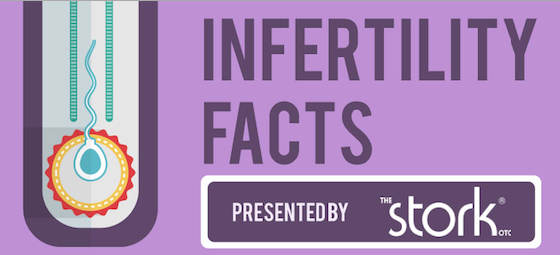Infertility occurs when couples are unable to get pregnant after repeated unprotected sex. Primary infertility describes couples who have never been pregnant while secondary infertility occurs when the difficulty of getting pregnant is after a first pregnancy. These days there are many options for infertility, depending on the couples personal interests and financial status. Adoption, medicines, artificial insemination, or in vitro fertilization show the wide variety of options available to struggling couples interested in starting a family.
What causes infertility?
Female infertility may involve problems with the eggs, ovaries, uterus, or all three. The ovaries may have trouble producing or releasing eggs; the eggs might have troubles traveling through the fallopian tubes to the uterus; there might be an attachment problem when the egg tries to attach to the lining of the uterus; or maybe the uterus is not providing a comfortable/stable environment for the egg to attach and survive.
Male infertility is all about the sperm. There may just be a low sperm count, a blockage or hindrance in the release of the sperm, or maybe sperm that don’t quite work/swim as well as they need to.
There are certain diagnostic tests couples can receive to pinpoint the infertility problem. (Causes of infertility are often 80-85 percent of the time determined by such exams). After knowing the cause, ways to get around the problem (if possible) may be determined; that or available options will be presented by the physician.
Options?
Adoption is an incredible opportunity. Agencies all around the United States and the world have information about the necessary process and children waiting to be loved.
If diagnostic tests are performed and a specific fertility problem is found, there is a possibility that specific medications may be used to address the complication. Certain medications help improve ovulation, make ovulation cycles more regular, or regulate specific hormone levels (in both males and females) to help improve fertility. Surgeries may also be performed to improve male ejaculation if a blockage is found.
Artificial insemination and in vitro fertilization are the next steps in efforts to getting pregnant. Artificial insemination is when the male sperm are inserted directly into the women’s cervix, fallopian tubes, or uterus. This allows a shorter trip for the sperm and reduces the chances of sperm dying in harsh vaginal environments. Unlike in vitro, the sperm still need to find an egg and fertilize on their own. In vitro fertilization is the process where mature female eggs are retrieved and fertilized with male sperm in a laboratory. The fertilized eggs are then implanted into the uterus with hopes that the fertilized egg(s) will attach to the inner lining. This process requires frequent blood tests and daily hormone injections and increases your chances of having multiples (since multiple fertilized eggs are often implanted at the same time to increase chances of pregnancy).
While infertility may be upsetting or frustrating, there is technology and advancements that have made pregnancy available to couples who may have never been able to conceive on their own. Others who have adopted after infertility complications have experienced the amazing joy of giving life and love to a child in need (and from my observance, received more life and love than ever thought possible).
Information about infertility and available options found in this article were retrieved from:
WebMD: http://www.webmd.com/infertility-and-reproduction/guide/artificial-insemination.
Google Health: https://health.google.com/health/ref/Infertility.
Claire is a twenty-three year old nursing student at Arizona State University interested in perinatal nursing. She currently lives in Tempe, AZ with her dog Bella.






Add a CommentComments
There are no comments yet. Be the first one and get the conversation started!